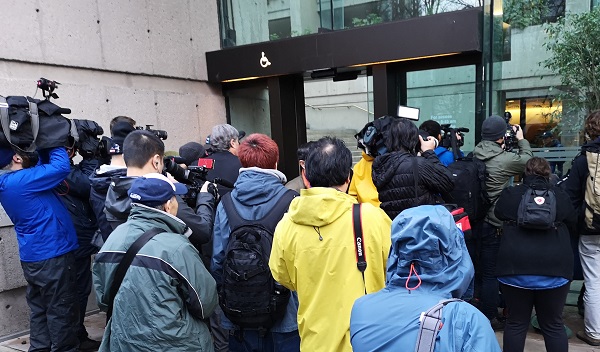
Toronto, Canada’s arrest of Meng Wanzhou last December at the behest of the US was unlawful and Washington’s request for her extradition should be rejected, lawyers for the Chief Financial Officer of Chinese telecommunications giant Huawei told a Canadian judge on Wednesday.
Defence attorneys called Meng’s detention at Vancouver International Airport an “abuse of power” and said that at the next hearing, set for September 23, they will formally ask British Columbia Supreme Court Judge Heather Holmes to quash the case.
Assuming the process moves forward after the September session, the soonest the court would hear arguments on the legality of extradition would be next January.
Meng, the daughter of Huawei founder and CEO Ren Zhengfei, was taken into custody December 1 during a layover in Vancouver en route from Hong Kong to Mexico.
She is on bail since then, though subject to electronic monitoring while residing in one of the two homes she and her husband own in Vancouver. Holmes acceded Wednesday to Meng’s request to be allowed to relocate to her other residence in the city.
In January, US federal prosecutors charged Meng with engaging in bank fraud, wire fraud and other financial misdeeds to enable Huawei to evade Washington’s unilateral sanctions against Iran.
The lawyers who accompanied Meng at Wednesday’s hearing in Vancouver told the judge they will seek more information from prosecutors about the circumstances of the December 1 arrest.
“The RCMP (Royal Canadian Mounted Police) intentionally delayed the presentation of the arrest warrant in order to carry out unlawful detention and search against Meng under the pretense of a routine border check,” Huawei’s Vice President of Media Affairs, Benjamin Howes, said outside the courthouse.
“Her luggage was searched. Her cell phone and other electronic devices were seized at the direction of the FBI – and she was compelled to reveal her passwords,” Howes said.
Regarding the substance of the US charges, the Huawei spokesman said defence lawyers presented evidence showing that “business activities by Meng were conducted openly and transparently with full knowledge of banking officials.”
Howes also said that the US extradition request is invalid under the terms of Canadian law and bilateral accords between Washington and Ottawa, because none of the actions imputed to Meng are crimes in Canada.
“The US allegations against Meng are based on violations of the US sanctions against Iran. However, Canada does not impose sanctions on financial services in relation to Iran,” he said.
Huawei Technologies Co. Ltd. is the world’s largest maker of telecommunications and China’s flagship enterprise. Beijing has reacted angrily to the US legal offensive against the company and its executives.
Several Canadians have been detained in China since Meng’s arrest and most of Beijing’s public ire has been directed at Ottawa.
In late January, Canadian Prime Minister Justin Trudeau fired his country’s ambassador to China after the envoy suggested that the courts in Canada might rule against extradition.
US President Donald Trump’s suggestions that he could use the legal case against Huawei and Meng to pressure China on trade may be grounds for a Canadian judge to rebuff the extradition request, John McCallum said.
Those comments from Trump have been cited repeatedly by Meng’s attorneys and Howes referred on Wednesday to “political factors at play during the extradition process.”









